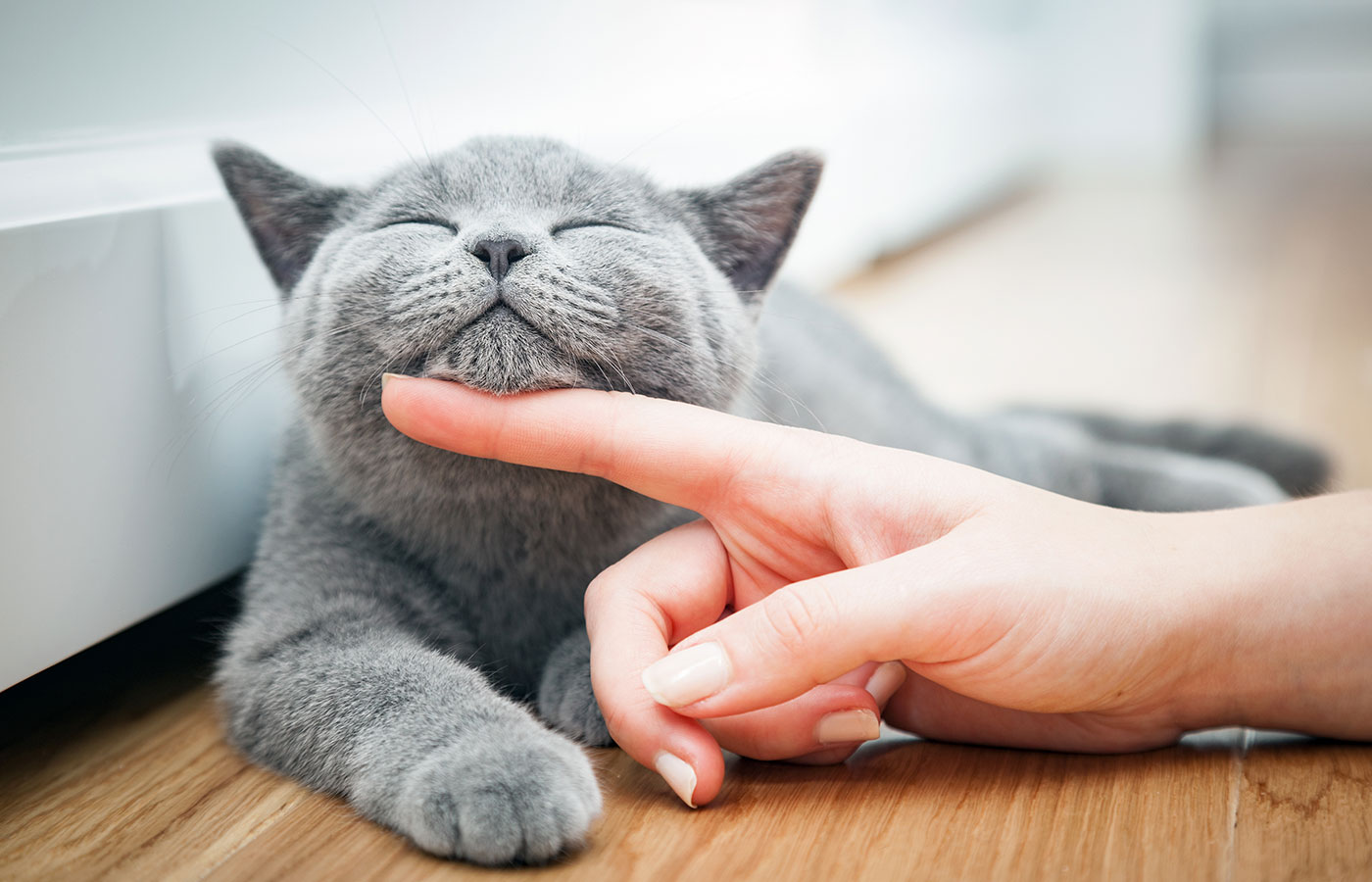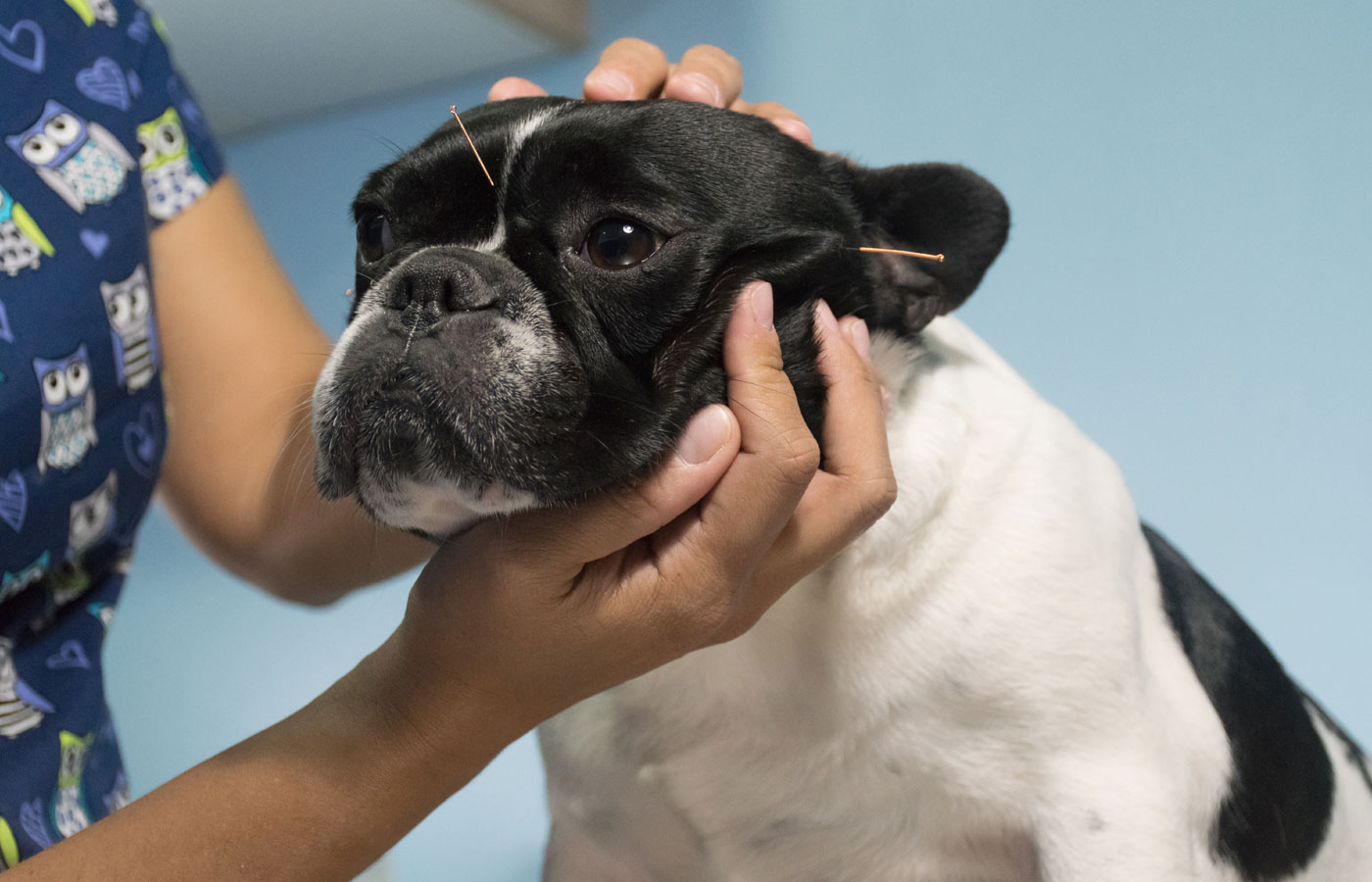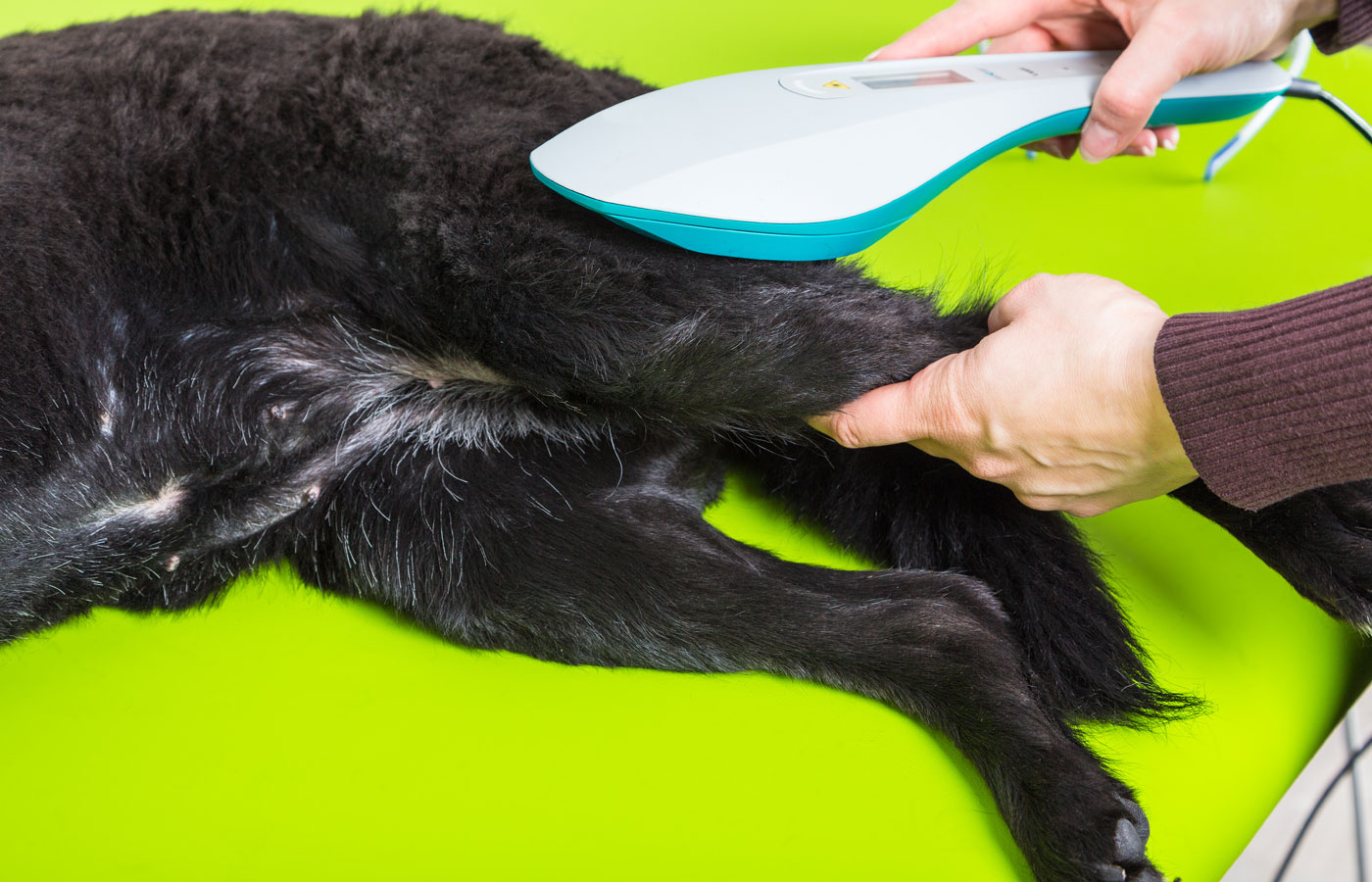Wellness & Preventive Care

Maintaining your best friends health is easy!
Regular, thorough exams and vaccines are an essential part of keeping your pet happy and healthy and preventing common diseases.
For all adult pets, exams should be yearly. Senior pets, and pets with chronic conditions such as
diabetes,
arthritis, epilepsy, or thyroid problems should be evaluated every 6 months, or as advised by your doctor.
Don’t hesitate to call or email us with questions concerning your pet.
Read More
General Medicine

At BFVC we recognize that you know your pet best. However, dogs and cats are masterful at concealing signs of illness until conditions may be quite advanced. With more than 25 years
of combined experience, our Veterinarians are well-versed in all aspects of general medicine including
dermatology, gastroenterology, nephrology, and cardiology.
When your pet isn’t feeling well, a thorough, careful discussion focused on recent changes is the essential start of the evaluation. Then the doctor perfoms the physical exam. Next, we partner with you to help your best friend get the care needed. We take the time to be certain you clearly understand our recommendations and treatment plan. Always together, through open communication, we move forward to return your pet to good health!
Once we begin the diagnostic process we will have answers very quickly. Our on-site blood machines can rapidly diagnose common conditions such as infection, kidney failure, liver disease, diabetes, or anemia. If your pet needs images taken to aid diagnosis our digital x-ray unit produces incredibly clear pictures within seconds, or we may choose to call in one of our consulting ultrasound specialists.
The sooner we arrive at a diagnosis, the sooner we begin treatments to return your pet to good health. At BFVC we will always prioritize your pet's health! You will be informed with up-to-the-minute updates via your preferred method of contact such as telephone, text, or email.
Read More
Vaccinations

At BFVC we know vaccines keep your pet free from common contagious diseases. Our vaccine protocol follows the guidelines set forth by the American Animal Hospital Association (AAHA).
All puppies and kittens should receive vaccines starting at 6-7 weeks of age, boostered every
2-4 weeks until approximately 15-16 weeks of age, or when the vaccine series is completed.
Most adult pets should receive annual booster for many vaccines, except for canine Rabies, which is given every 3 years to dogs. However, since no two pets are the same or lead the same life our vaccine protocols are custom tailored for his or her specific needs based on your input.
Did you know even your indoor cat is at risk for diseases? Open windows, visiting pets, and newly adopted pets are possible sources of preventable diseases for your indoor cat.
We will gladly discuss our pediatric or adult pet vaccine protocols with you at any time.
Read More
Pharmacy

At BFVC we dispense medications from our comprehensive veterinary pharmacy. Your pet can begin feeling better immediately, and you won’t need to make another stop. Additionally, many medications can be special ordered in very little time when liquid, chewable, topical or unique strength doses are required.
For prescription refills please call ahead, and it will be ready and waiting for you.
Prefer home delivery? We have that covered too. We have partnered with Vets First Choice Veterinary Pharmacy to provide a comprehensive pharmacy available 24x7, online for your convenience. And yes, shipping is free!
Visit our online pharmacy here.
Read More
Dentistry

Did you know that it is dental disease that causes “doggy or kitty breath”?
Gingivitis and dental disease are the most common problems pets face, affecting some toy breed dogs and cats as soon as
adult teeth erupt, at about 6 months of age, though any breed of dog or cat may be affected
at any age.
So what to do? We recommend brushing your pet’s teeth, starting at a very young age, using pet toothpaste and a soft bristle brush. The general rule is daily, but certainly as often as you possibly can. Yes, even for cats!
A healthy mouth has clean white teeth, soft pink gums and pleasant or inoffensive breath. Signs of dental disease can be vague including poor appetite, a swelling of the face, killer breath, dropping of food, blood on a favorite toy or treat, or a sudden, dramatic change in mouth odor. Visibly dirty teeth, loose teeth, and bad breath are a major cause for concern. This means there is infection of the teeth or gums, which could spread to other parts of the body. Most pets are quite stoic. Bad teeth hurt!
Proper pet dental care is always performed under general anesthesia with an endotracheal breathing tube in place. This tube delivers oxygen-enriched anesthetic gas and creates a closed airway system which is vital to preventing the bacteria-rich plaque, tartar, and debris cleaned off the teeth from entering the lungs of the pet patient. Anesthesia provides a pet's comfort and safety and permits a thorough oral exam for problems such as periodontal pockets, oral tumors, dental cavities, resorptive lesions, and tooth fractures.
In keeping with the standards set by the American Veterinary Dental College, we always obtain x-rays of all teeth (full mouth) as we begin each pet's dental procedure using our industry-leader, Midmark Digital Dental Radiography System. Dental x-rays have been the standard in "human" dentistry for years and are even more essential in veterinary patients who are unable to state where it hurts!
Unfortunately, many patients who present with advanced dental disease require tooth extraction. Our Veterinarians are highly experienced in tooth extraction surgery, oral tumor removal, and administration of local nerve (novicaine-type) blocks to provide excellent pain relief post-operatively. As pet teeth can be quite small and brittle, post-extraction x-rays are included to verify no part of the tooth remains to cause pain or any future issue for our patients.
"Awake" Dentistry
Many people are nervous to subject their beloved pet to anesthesia. It is important to note that “awake” dentistry does not allow for proper above and below the gum line care, and could lead to serious injury. Sharp instruments may injure the mouth, or worse, the eyes, during “awake” dentistry. Additionally, veterinary patients will not cooperate when a dental x-ray sensor is placed in the mouth. Taking dental x-rays requires that the patient is anesthetized. Since most dental disease is below the gums, dental x-rays are essential to proper evaluation, diagnosis and treatment. The safest, most humane, and the only thorough approach to pet dental care is with general anesthesia.
We understand many pet owners are anxious about these procedures and welcome any questions you may have about your pet’s oral health.
Read More
- Before
- After
Digital X-Rays

At BFVC our digital x-ray system produces images in less than 4 seconds, using state-of-the-art cesium technology that exposes your pet to significantly less radiation than traditional systems.
This allows us the ability to diagnose quickly, begin treatments immediately, and make your
visit to us as brief as possible.
Our digital x-ray system also allows us to make copies for you to bring home on CD, and to send the images via the internet for immediate review, if necessary, by a wide array of specialists such as cardiologists, orthopedists, and oncologists.
Any guess what the above xray shows? Yes, those are puppies very soon to be born!
We are proud to use JPI Healthcare, a Long Island Company, for our digital x-ray system
Read More
- Xray
- Xray Puppies
On-Site Laboratory

There is nothing more important than getting a fast answer when a pet is sick! The time from examination to treatment can be life saving. At Best Friends our on-site hematology and blood chemistry
analyzers provide detailed blood reports in less than 15 minutes. We are proud to offer on-site
testing with industry standard Abaxis machines, and to partner with Antech Diagnostics for enhanced laboratory services. You and your pet won’t wait long for answers at Best Friends.
Read More
Spay/Neuter

Get those terms mixed up? Don’t worry, lots of people do. Spay, for females is a complete ovariohysterectomy or removal of the ovaries and uterus. For males, a neuter is an orchidectomy or removal of
the testes. Most pet owners today understand the long term health benefits of
having their pets spayed or neutered such as prevention of mammary (breast) cancers and common prostate diseases such as BPH. Did you know if a female is spayed before the onset of “puberty” that her chances of ever developing a breast tumor are almost zero?
Safety and comfort are the primary goals for our surgical patients. Hopefully this is the only surgery your pet will ever have, and at BFVC we make certain that this procedure is as safe as possible. Before we begin any anesthetic procedure we will strongly recommend pre-operative blood work to evaluate liver and kidney function, among other important tests, exactly like what your own Doctor’s office would do for you.
Once the test results have been reviewed by our Veterinarians, your pet’s surgery will be scheduled based on your most convenient day. We will ask you not to feed your pet for 12 hours prior to that scheduled time. Every patient will have only the safest drugs available administered under the direct supervision of our Veterinarians. Anesthesia is closely monitored by state-of-the-art-equipment and our highly trained, licensed, and experienced staff. Our patients are always kept comfortable with heated table surfaces, plenty of soft comfortable bedding, and proper pain management.
Most pet owners positively groan thinking their pet may have to wear the dreaded Elizabethan collar (satelite dish or cone of shame). For that reason and your pet's comfort, our surgical incisions are usually closed with absorbable sutures underneath the skin. This method provides the most cosmetic appearance and with no “outside” stitches to lick, most pets tend to ignore their incisions. Best of all, no “satellite dish” needed!
Read More
Surgery

There are many reasons your pet may need surgery besides spaying or neutering. Orthopedic injury, broken bone, laceration, ingestion of a foreign object, bladder stones, and growth of tumors
(whether cancerous or not) are just some of these possibilities. At BFVC our doctors are highly
experienced in all aspects of soft tissue surgery and common orthopedic procedures such as rupture of the anterior cruciate ligament (ACL). With well over 25 years of combined practice experience and a fully licensed support staff, you can rest assured that your best friend is in very capable hands.
Read More
- Surgery
Second Opinions

At BFVC we know exactly how important your pet is to you and your family. It is essential that you are confident and comfortable with the information you are given about your best friend. We are always
happy to provide additional opinions on any issue your pet may be facing. As these
consultations may be quite involved we prefer to have a copy of your pet's complete medical record to review prior to your appointment. The record should include the doctor’s notes, laboratory tests, copies of x-rays or ultrasound reports, or other pertinent information.
These records may be delivered in person, via fax, or email. If records are being sent directly from another veterinary office we ask that you contact our office to confirm receipt.
Please allow 24 – 48 hours for the record(s) to be reviewed prior to your pet's appointment.
Fax: 631-656-6008
Email: bfvcmail@yahoo.com
Read More
Acupuncture

Acupuncture is a healing modality that originated in China over 4,000 year ago. Treatment involves the insertion of thin sterile needles into specific points on the body known as acupoints or areas where there is a high density of free nerve endings, tiny arteries and veins, lymphatic
channels, and white blood cells.
When an acupoint is stimulated, it causes a release of neurotransmitters and neurohormones (such as natural endorphins in the body) to relieve pain, relieve muscle spasms, stimulate nerves, stimulate the immune system, increase blood flow and decrease inflammation.
Acupuncture is commonly used to treat:
In addition to needles, there are other ways of stimulating an acupuncture point including heat (moxibustion), electrical stimulation (electroacupuncture), injections of dilute solutions into acupoints (aquapuncture) and infrared light therapy (laser therapy).
But…does it hurt? Insertion of needles is not painful, and the patient feels the needle only as it goes through the skin - for only a moment. Most patients barely react, if at all. What about side effects?
Acupuncture is one of the safest therapies available when performed by a certified veterinary acupuncturist. Response to acupuncture is usually cumulative and based on the individual. Some patients see improvement immediately, but others will require treatment over a period of weeks. How many treatments are necessary?
Generally a minimum of 3 to 5 treatments done 1-2 weeks apart are needed for chronic conditions before there is notable improvement. A treatment schedule will be developed based on your pet’s specific needs. Each treatment takes anywhere from 15-30 minutes. What if my pet takes other medications or supplements?
Acupuncture can be successfully combined with conventional veterinary treatment. In many cases a combination of Eastern and Western medicine will provide the best clinical outcome. Our Certified Veterinary Acupuncturist, Dr. Rooney, also performs house call Equine acupuncture. If you are interested, please call us at 631-656-5990. Read More
- Pain, especially in geriatric patients to improve quality of life
- Musculoskeletal disorders including osteoarthritis, back pain, degenerative joint disease, post-operative orthopedic surgery, joint dysplasia
- Neurologic disease including intervertebral disc disease, paralysis/paresis, seizures, neuropathies
- Gastrointestinal disorders causing nausea, constipation
- Skin disorders such as allergic dermatitis, chronic skin, or ear infections
- Respiratory diseases: asthma, chronic cough, rhinitis/sinusitis
- Kidney and Liver disease
- Immune system stimulation
- Urogenital disorders including urinary incontinence and urinary tract infections
- Oncology (Cancer) patients to reduce side effects of chemotherapy and enhance the immune system
But…does it hurt? Insertion of needles is not painful, and the patient feels the needle only as it goes through the skin - for only a moment. Most patients barely react, if at all. What about side effects?
Acupuncture is one of the safest therapies available when performed by a certified veterinary acupuncturist. Response to acupuncture is usually cumulative and based on the individual. Some patients see improvement immediately, but others will require treatment over a period of weeks. How many treatments are necessary?
Generally a minimum of 3 to 5 treatments done 1-2 weeks apart are needed for chronic conditions before there is notable improvement. A treatment schedule will be developed based on your pet’s specific needs. Each treatment takes anywhere from 15-30 minutes. What if my pet takes other medications or supplements?
Acupuncture can be successfully combined with conventional veterinary treatment. In many cases a combination of Eastern and Western medicine will provide the best clinical outcome. Our Certified Veterinary Acupuncturist, Dr. Rooney, also performs house call Equine acupuncture. If you are interested, please call us at 631-656-5990. Read More
Laser Therapy

Laser therapy is a non-invasive procedure that involves the use of an infrared laser light that penetrates deep into the tissues. This light is then absorbed by the cells and converted into chemical energy, which stimulates cell metabolism and increases blood flow. Research has shown
that the use of laser therapy improves the health of cells in your pet’s tissues, which helps speed recovery and reduce pain from surgery or injury.
Read More










